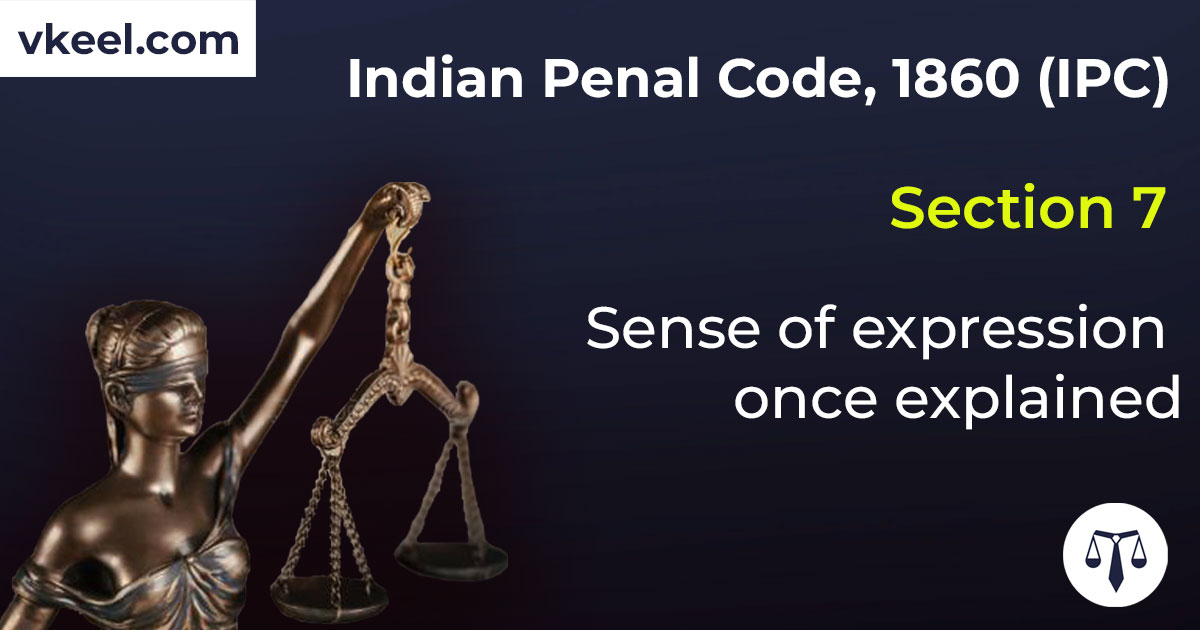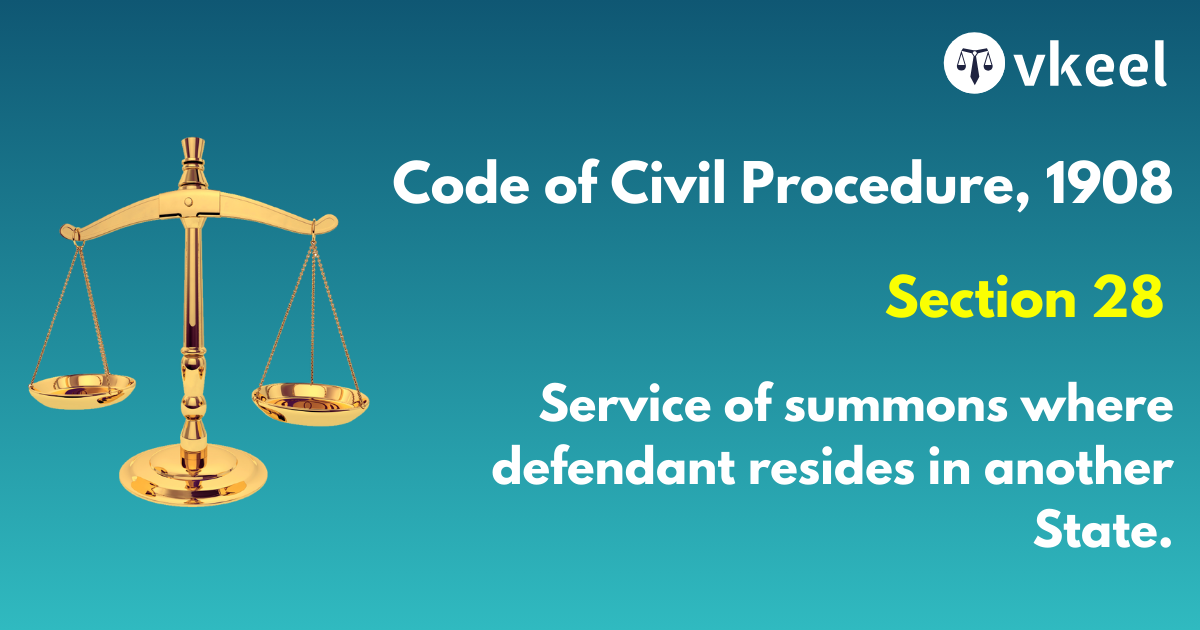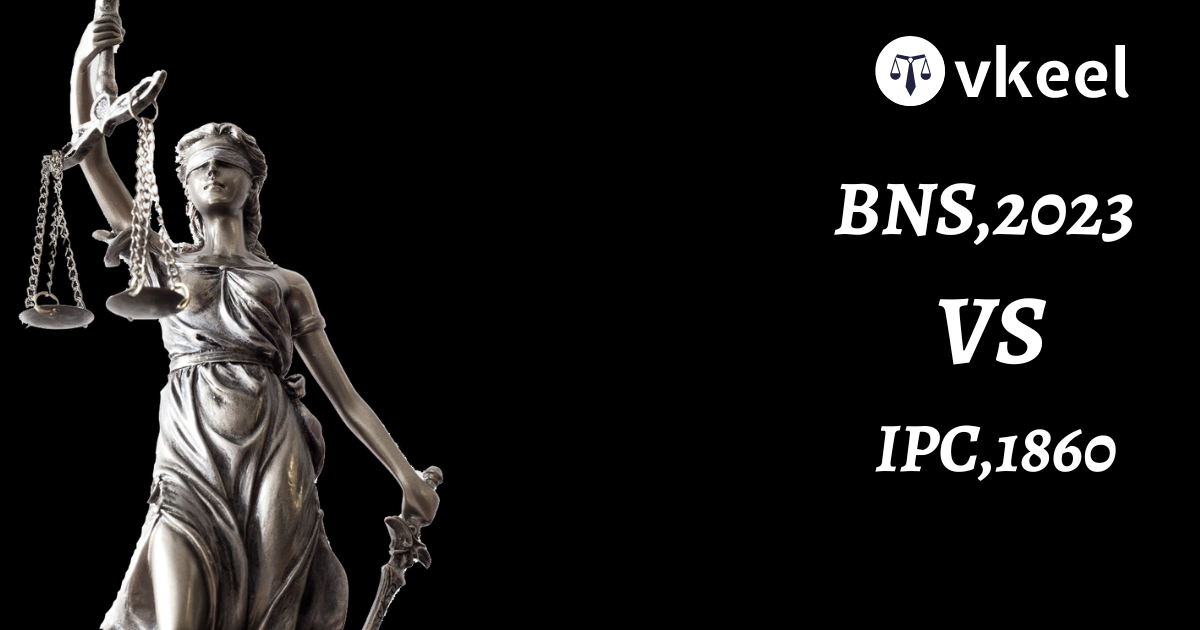Section 7 Indian Penal Code 1860 (IPC) – Sense of expression once explained
By Vkeel Team
Table of Contents
Description
“Section 7 Indian Penal Code 1860 (IPC)”
Every expression which is explained in any part of this Code, is used in every part of this Code in conformity with the explanation.
Introduction to Section 7 Indian Penal Code 1860
The Indian Penal Code (IPC) is the main criminal code of India that defines various offenses and their punishments. Section 7 of the IPC defines the term “offense” and provides guidance on how to determine if an act constitutes an offense under the code. In this article, we will provide a comprehensive overview of Section 7 of the Indian Penal Code.
Definition of “Offense”
According to Section 7 of Indian Penal Code 1860, an offense is any act or omission made punishable by any law for the time being in force. This means that an offense is any action that is prohibited by law and is punishable by law. Additionally, an offense can be an act or omission, meaning that a failure to act when required by law can also be considered an offense.
Act and Omission
As mentioned earlier, an offense can be an act or omission. An act is something that a person does, such as stealing or assaulting someone. An omission, on the other hand, is a failure to act when required by law. For example, if a person fails to report a crime, they can be held liable for the offense of omission.
Punishment for Offense
Section 7 of the Indian Penal Code 1860 also states that an offense must be punishable by law for it to be considered an offense under the IPC. This means that if there is no punishment for an act or omission, it cannot be considered an offense. The punishment for an offense can vary depending on the severity of the offense and other factors, such as the criminal record of the offender.
Offenses under Other Laws
Section 7 of the Indian Penal Code 1860 also includes offenses that are defined under other laws in India. For example, if a person violates a traffic law, they can be charged under the Motor Vehicles Act, 1988, which is a separate law. However, if the same act is also considered an offense under the IPC, the person can be charged under both laws.
Exceptions
Section 7 of the Indian Penal Code 1860 includes several exceptions to the definition of offense. For example, an act or omission that was not punishable by law when it was committed cannot be considered an offense. Additionally, an act that is done in good faith or in the exercise of a lawful authority is not considered an offense.
Conclusion
In conclusion, Section 7 of the Indian Penal Code 1860 defines the term “offense” and provides guidance on how to determine if an act or omission is considered an offense under the code. It also includes exceptions to the definition of offense and covers offenses defined under other laws in India. Understanding Section 7 is crucial for anyone involved in the Indian legal system, including lawyers, judges, and law enforcement officials.
Desctiption Source: indiacode
Disclaimer:
The information provided in the article is for general informational purposes only, and is not intended to constitute legal advice or to be relied upon as a substitute for legal advice. Furthermore, any information contained in the article is not guaranteed to be current, complete or accurate. If you require legal advice or representation, you should contact an attorney or law firm directly. We are not responsible for any damages resulting from any reliance on the content of this website.












